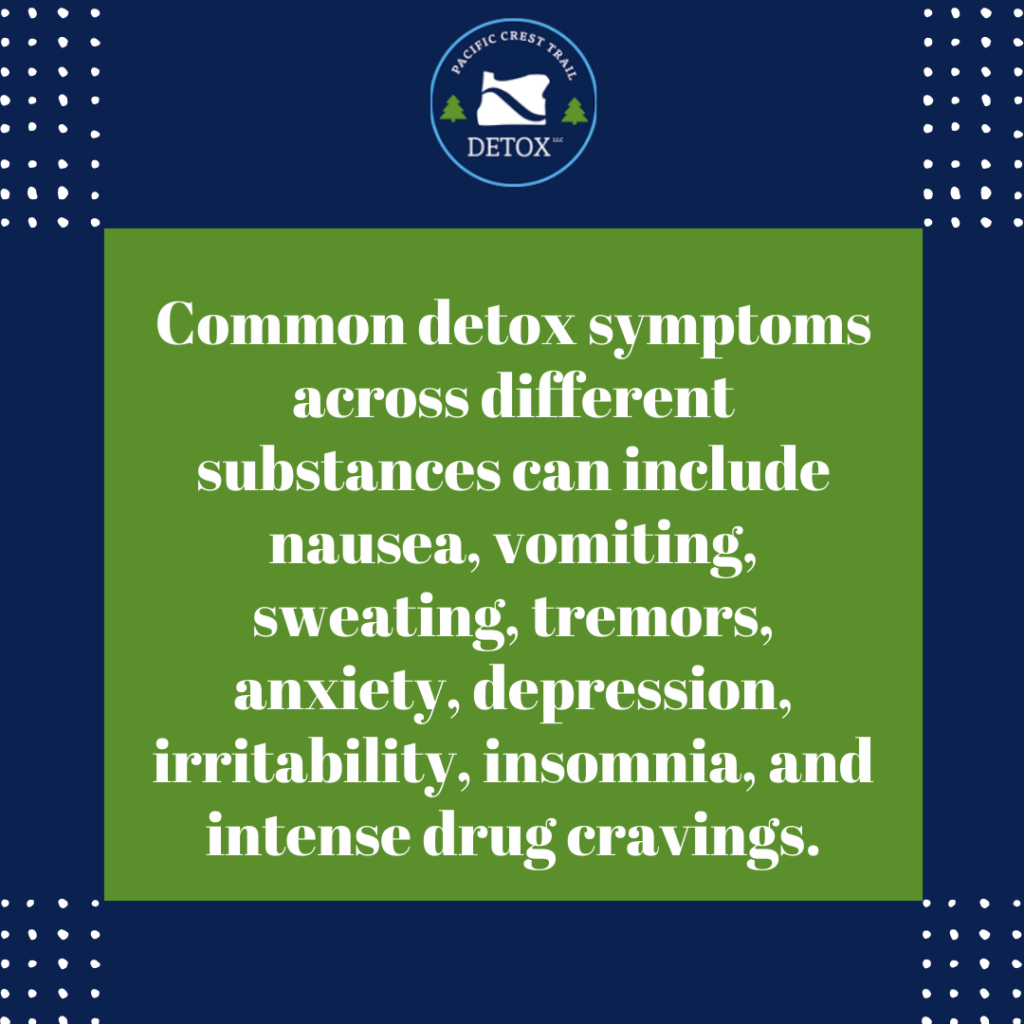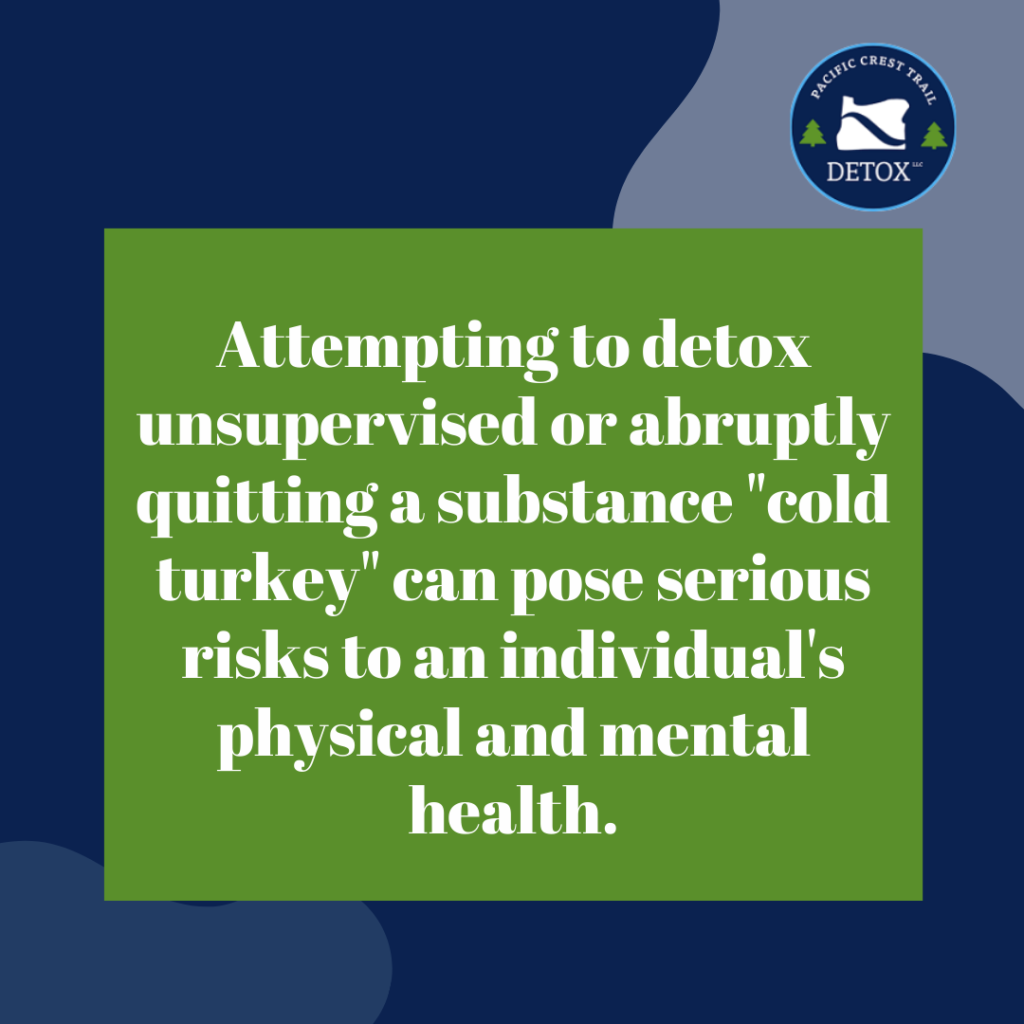Detoxification is a critical component of addiction recovery. It involves removing toxic substances like drugs and alcohol from the body. During this process, individuals may experience a range of detox symptoms.
By breaking the physical dependence on these substances, detoxification helps manage withdrawal, reduces health risks, and prepares individuals for ongoing treatment and counseling.
It provides a supportive environment where medical professionals can monitor and address potential complications, increasing the chances of successful recovery.
Moreover, detoxification sets the stage for long-term rehabilitation by clearing the mind for therapy and increasing motivation to pursue sobriety. It addresses addiction’s physical and psychological aspects, laying the foundation for individuals to reclaim control of their lives and work towards sustained recovery.

Understanding Detox Symptoms
Detox symptoms are the physical and psychological reactions when an individual halts using a substance they have become dependent on. The symptoms arise due to the body’s adjustment to the absence of the substance as it tries to regain its natural balance.
The severity and duration of detox symptoms vary depending on factors such as the type of substance used, the duration of the addiction, and individual differences in metabolism and overall health.
Common detox symptoms across different substances can include nausea, vomiting, sweating, tremors, anxiety, depression, irritability, insomnia, and intense drug cravings. For alcohol detox, symptoms may include delirium tremens (DTs), severe withdrawal symptoms characterized by confusion, rapid heartbeat, and seizures.
Opioid detox can lead to flu-like symptoms, muscle pain, and yawning. Stimulant withdrawal may manifest as fatigue, agitation, and increased appetite. Benzodiazepine detox can result in rebound anxiety, panic attacks, and difficulty concentrating.
The complexity and potential dangers of detox symptoms underscore the importance of seeking professional medical and psychological support during detoxification to ensure a safe withdrawal and a successful transition to recovery.
Timelines of Withdrawal Symptoms
Withdrawal symptoms during detoxification vary depending on the substance used and individual factors. The timelines for addiction withdrawal may differ among substances.
For alcohol withdrawal, mild symptoms may start within hours after the last drink, while more severe symptoms like delirium tremens may appear within 48 to 72 hours.
Opioid withdrawal typically begins within 12 hours after the last dose, peaking around 72 hours, but may last for several days to weeks. Cocaine withdrawal is often characterized by a “crash” period after the last use, followed by more extended periods of depression and craving.
The duration of substance use plays a crucial role in withdrawal timelines. Prolonged and heavy use leads to more severe and prolonged withdrawal symptoms. Additionally, the type of substance used can influence the intensity and duration of withdrawal. Substances with longer half-lives, like certain opioids and benzodiazepines, may have more prolonged withdrawal periods compared to substances with shorter half-lives, like cocaine.
Individual health also influences withdrawal timelines. People with underlying health issues or compromised organ function may experience longer and more intense withdrawal symptoms.
Furthermore, individual differences in genetics, metabolism, and overall resilience can affect how quickly the body processes and eliminates substances, impacting the onset and duration of withdrawal symptoms.

The Importance of Safe Withdrawal
The importance of safe withdrawal cannot be overstated regarding addiction recovery. Attempting to detox unsupervised or abruptly quitting a substance “cold turkey” can pose serious risks to an individual’s physical and mental health.
Withdrawal symptoms can be intense and life-threatening. For example, sudden cessation of alcohol or benzodiazepines can lead to seizures and delirium tremens, while opioid withdrawal can cause severe flu-like symptoms and intense cravings.
Medical supervision during the detox process is crucial to mitigate these risks. Healthcare professionals can provide appropriate medications and therapies to manage withdrawal symptoms, ensuring a more comfortable and safer detoxification experience.
Moreover, they can monitor for complications and respond promptly if medical emergencies arise. The support and guidance offered during supervised detox enhance physical safety and emotional support. This increases the chances of successful detoxification and long-term recovery.

Strategies for Relieving Detox Symptoms
A comprehensive approach that combines medical interventions and self-care measures can significantly alleviate the discomfort of withdrawal.
Medically, healthcare professionals may use drugs to ease specific symptoms. For example, benzodiazepines might be prescribed for alcohol or benzodiazepine withdrawal to reduce anxiety and prevent seizures.
For opioid withdrawal, medications like buprenorphine or methadone can help manage cravings and minimize the severity of symptoms. In addition to medical interventions, self-care measures play a crucial role.
Staying hydrated and nourished with a balanced diet can support the body during detox. Engaging in regular exercise can help alleviate stress and boost mood. Adequate rest and sleep are necessary for the body’s healing process.
Looking Beyond Detox: Long-Term Recovery Strategies
Detox is just one step in the journey to recovery, and long-term strategies are crucial for achieving lasting positive change. After detox, individuals have various post-detox treatment options to support their ongoing recovery. Therapy addresses underlying issues and provides coping skills to prevent relapse. Support groups, such as Alcoholics Anonymous (AA) or Narcotics Anonymous (NA), offer a sense of community and understanding among peers facing similar challenges.
Medications may be prescribed to manage cravings and reduce the risk of relapse for certain addictions, like opioid use disorder. Holistic approaches such as mindfulness, yoga, and art therapy can complement traditional treatments by promoting overall well-being.

Embracing these long-term strategies and seeking ongoing support is essential, as recovery is a journey that requires dedication, patience, and resilience. By acknowledging that detox is just the beginning and staying committed to a comprehensive approach, individuals can increase their chances of building a fulfilling life free from addiction.
If you know anyone struggling with detox symptoms in Portland, contact us at Pacific Crest Trail, one of the treatment centers that offers detox in Portland Oregon.
